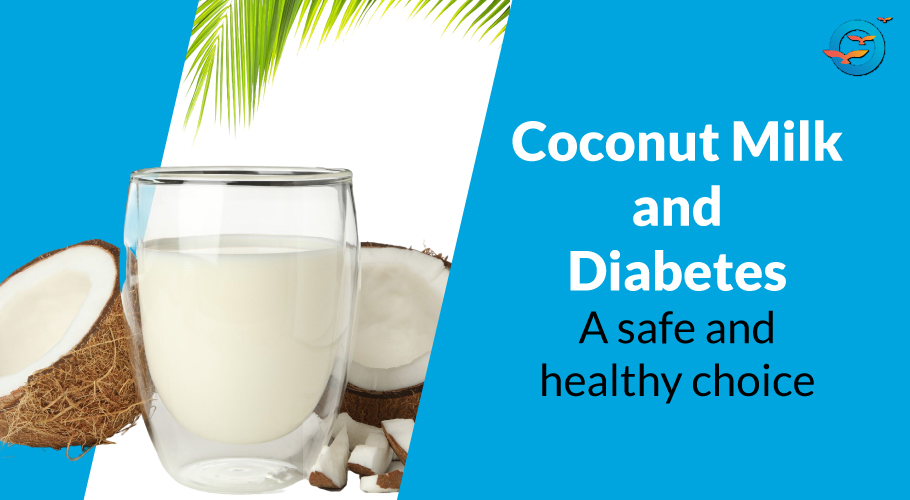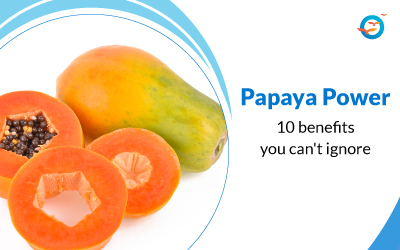Is Coconut Milk Good for Diabetes?

Is coconut milk good for diabetes?
Coconut milk is a creamy, rich liquid extracted from the grated flesh of mature coconuts, typically found in tropical regions. It is made by blending the coconut meat with water and then straining the mixture to separate the liquid from the solid remnants.
Coconut milk is a popular ingredient in various cuisines, particularly in Southeast Asian and Caribbean dishes, where it adds a distinct flavor and texture to soups, curries, desserts, and beverages.
Coconut milk can be found in different varieties, including light and full-fat versions, catering to various culinary needs and dietary preferences.
Nutritional composition of coconut milk
Coconut milk contains healthy fats, vitamins, and minerals, making it a nutritious alternative to dairy milk for those who are lactose intolerant or following a plant-based diet. It is abundant in Vitamin E, a potent antioxidant that aids in shielding the body from oxidative stress.
Furthermore, it is packed with essential minerals like calcium, which is vital for sustaining strong bones and overall skeletal health. Adding coconut milk to your diet can deliver these important nutrients, promoting both immune function and bone strength.
Is coconut good for diabetes patients?
Coconut milk can be a beneficial addition to the diets of diabetics for several reasons. Firstly, it does not contain insulin-like growth factor (IGF), which can influence insulin sensitivity and blood sugar levels. This makes coconut milk a safer option for those managing diabetes, as it won't contribute to spikes in insulin or glucose.
Additionally, coconut milk is rich in medium-chain triglycerides (MCTs), a type of healthy fat that is metabolized differently than other fats. MCTs can provide a quick source of energy and may help improve insulin sensitivity, making them a favorable choice for individuals with diabetes.
Furthermore, the healthy fats in coconut milk can promote satiety, helping to control hunger and potentially leading to better weight management, which is crucial for diabetes management. Overall, incorporating coconut milk into a balanced diet can offer both flavor and health benefits for those living with diabetes.
Fresh Coconut Milk Vs packaged
Fresh coconut milk and packaged coconut milk differ significantly in terms of flavor, texture, and nutritional content. Fresh coconut milk is made by grating the flesh of mature coconuts and blending it with water, resulting in a rich, creamy liquid that retains the natural flavors and nutrients of the coconut. It is often considered the healthiest option, as it is free from preservatives and additives.
In contrast, packaged coconut milk, which is widely available in stores, may contain additives such as stabilizers, emulsifiers, and preservatives to enhance shelf life and improve texture. While some brands offer organic or minimally processed options, others may include added sugars or artificial flavors, which can detract from the health benefits of coconut milk.
Therefore, when choosing packaged coconut milk, it is essential to read the ingredient list carefully to ensure that you are selecting a product that aligns with your dietary preferences and health goals.
Tips for Consuming Coconut Milk
When it comes to consuming coconut milk, moderation is key, as it is calorie-dense and high in fat. A typical serving size is about 1/4 to 1/2 cup (60 to 120 ml) per day, which can provide the health benefits associated with coconut milk without excessive calorie intake.
Additionally, opting for thinner coconut milk is often better than thicker varieties, especially for those monitoring their fat intake or looking to manage their weight. Thinner coconut milk typically contains more water and fewer calories, making it a lighter option that can still add flavor and creaminess to dishes without overwhelming the diet with saturated fats.
Incorporating thinner coconut milk into smoothies, soups, or sauces can enhance the nutritional profile of meals while keeping calorie counts in check.
Coconut milk is vegan milk.
Diabetics... just do not hesitate... opt for it!
FAQs
Is Coconut Milk Safe for Diabetics?
Yes, in moderation, coconut milk is generally safe for diabetics. It’s low in carbohydrates, which helps prevent blood sugar spikes.
Does Coconut Milk Raise Your Blood Sugar?
Coconut milk is low in carbs and has a low glycemic index, so it doesn’t significantly raise blood sugar when consumed in moderate amounts.
Can I Drink Coconut Milk if I Have Diabetes?
Yes, diabetics can drink coconut milk, but it’s best to choose unsweetened varieties and limit portions.
What Are the Health Benefits of Coconut Milk for Diabetics?
Coconut milk provides healthy fats, supports heart health, may improve insulin sensitivity, and can help with satiety, reducing the urge to snack on high-carb foods.
How Much Coconut Milk Can a Diabetic Person Consume?
Moderation is key; about ½ to 1 cup per day is generally safe, depending on individual dietary needs and blood sugar levels.
Are There Any Risks to Consider with Coconut Milk for Diabetics?
Coconut milk is high in calories and saturated fat, which could contribute to weight gain and affect cholesterol levels if consumed in excess.
Why Is Coconut Milk a Good Choice for Diabetics?
Its low carbohydrate content helps manage blood sugar, and the healthy fats promote satiety, making it a satisfying alternative to dairy milk for diabetics.

